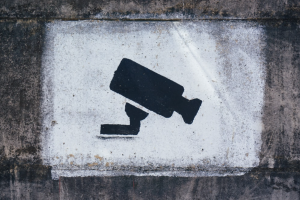Employees have basic rights regarding their privacy and matters concerning private or personal issues, which is why monitoring their social media accounts can be considered unethical.
For many employers, online access for private concerns during work hours has become a recurring issue. Most of the time, the distinction between company-related work and leisure time becomes blurred.
This leads to the point where some employers downright prohibit the use of social media for workers. On other accounts, most people get by saying their work nature involves the use of social media for research purposes or pursuing company objectives. Anyhow this seems to be a never-ending debate.
According to a recent study by PEW Research:
“51% of all full-time and part-time workers say that their workplace has rules about using social media at work. Furthermore, 32% report that their employers have policies about how employees may present themselves on the internet in general. Regardless of the case, 77% of workers say that they use social media anyhow irrespective of whether their employer has policies in place.”
In light of this information, let’s take a quick look at some of the reasons why monitoring employees’ social media accounts may be considered unethical.
- Brewing Fear
No one likes to have a shadow peeping over their personal lives and whatever they do in their spare time. If employers start intervening in the actions of employees after work hours, then this slowly blurs the line between employment and slavery.
There is a long and never-ending debate between how much control do employers exert in the lives of employees, and the term ‘corporate slave’ is widely used and known by people across the globe.
From the employees’ side, the dependency on salary as a means of resource for a living can be exploited to make them adjust their actions with respect to a corporation’s ideals. This pressure results in the creation of fear in employees where they may feel afraid of living a free life after work hours.
From the employer’s end, the conflict of interest is a key concern, and as far as ethical implications go, the management must decide and educate their employees about the dos and don’ts of social media usage.
Without a clear line that separates what is appropriate and what is not, such issues can disrupt productivity at the workplace and create further problems.
- Discouraging Social Interaction
Social media is a means to not only connect with family and friends but also socialize with people around the globe. Many businesses today, in fact, use social media platforms to connect with customers, business partners, influencers, promoters, advertisers, and various other entities.
This is where the management needs to step up and define the right use of social media for work and differentiate between personal and office use.
The concern from employees’ end can also be a genuine one where a friend or a family member may reach out to them through social media like WhatsApp or Facebook Messenger to relay an urgent request or an emergency at home.
Likewise, I consider that these problems can be overcome with fair policy-making and agreements between the employees and employers. However, negating the importance of such policies will not only hamper work and productivity at the workplace but also lead to serious concerns regarding the safety of company information.
- Instilling Suffocation
With the population around the planet quickly changing, we have Millennials finally overtaking baby boomers as the biggest constituent in the global population. Furthermore, Centennials and Generation Z are also growing in numbers and would soon be dominating labor markets. The young generation, in short, adores the use of social media and thus has become the driving source behind its popular use.
Corporations, managers, and chiefs of their establishments need to realize the importance of the role social media plays in the lives of the younger population. Spying on their social media accounts would indefinitely make them feel like living in a suffocating environment.
However, I still believe that some margins can be drawn, and a win-win solution can be achieved between both parties where neither side has to suffer.
- Leading to Discrimination
A major issue which the entire world is dealing with right now is that of discrimination, prejudice, and racism. People of color, especially with movements like ‘Black Lives Matter‘ and the LGBTQ community, are voicing their concerns about how their lives are being impacted due to the biased behavior of those in power.
Therefore if a company is found to discriminate against their employees on their behaviors, choices, and actions outside of work, then it definitely needs to be addressed and considered an unethical practice.
Such practices of management in the recruitment of talented resources also become a concern since management and HR can be questioned on their decisions as to whether their selection process is fair and just.
- Matters of Trust

Painting of surveillance camera on wall; image by Tobias Tullius, via Unsplash.com.
The company trusts their employees that they would not share confidential and volatile information, trade secrets, and other valuable data with third parties or outside sources. However, the employees also base their trust in the management that they would allow them to work in a free environment and not intervene in matters that are personal and private.
Between these two cornerstones, there is a grey area that can be manipulated and, as such, can be used to harm the integrity and credibility of a corporation.
However, at the same time, American laws of employment provide safety towards whistleblowers who find businesses practicing unethical means of trade. How far each party can trust the other is again a matter of deeper discussion where rules and regulations can be made to address such concerns in greater detail.
- Needless Drama
Often at times, concerns related to social media usage can create needless drama for the workplace where the management can attack the professional image of an employee. This is why it is important to demarcate acceptable use of social media and the misuse of social media platforms early on as it can help in avoiding unpleasant encounters at the workplace.
- Off-Duty Conduct
Companies need to ascertain their concerns and issues, if any, regarding off-duty conduct of employees and how they behave after work hours. This can again make employees feel uncomfortable where they may feel their lives being rigged by corporations and taken under the control of management that is enforcing its rules and regulations on them even after work hours.
A common ground has to be found where employers need to give acceptable freedom to their employees and where employees can conform to agreeable terms concerning their conduct when they are off duty.
- Personal Life versus Professional Contribution
Organizations need to set out a criterion that differentiates between two main areas of concern, including the personal life of employees and their professional contribution.
These two must be considered separate and therefore, should be treated individually. Personal lives of employees should never override their professional contribution to the workplace, and as such, their valor and efforts put in at work should always be prioritized.
However, again in matters of going against company policies and matters related to trust and confidentiality would then require immediate action as they would then become the ultimate priority.
On the other hand, companies are required by the legal framework to follow the recommendations approved by the constitution of the USA and abide by the following decrees:
- ECPA – The Electronics Communications Privacy Act that prohibits employers from monitoring personal phone calls of employees even when made or received through the employer’s property.
- NLRB – The National Labor Relations Act prohibits employers from using video surveillance to monitor union activities of employees.
- There are lawsuits that restrict an employer’s ability to enforce drug screening of existing employees in many states.
- Basic workplace rights that protect employees from discrimination, harassment, unfair compensation, dangerous conditions, and invasion of privacy, to name a few.
- Suppressing Freedom of Choice, Speech, & Expression
People have the right to express their concerns, and that is why ‘whistleblower’ rights are granted to everyone who is provided protection against punishment for making a rightful claim or complaint. Social media can be considered contemporary platforms for whistleblowers for quickly relaying misdoings of an organization.
However, at the same time, employees often rationalize their tactic and would then seek out a far better and more direct approach, which would involve informing a government agency rather than social media.
It is important to note here that Freedom of Speech for employees working in the private sector can be a problem. The First Amendment, therefore, usually doesn’t involve private actors, which can refer to private company owners.
Conclusion
Employees have basic rights regarding their privacy and matters concerning private or personal issues, which is why monitoring their social media accounts can be considered unethical. However, at the same time, there are no federal laws that explicitly prohibit organizations from following such practices.
Nevertheless, when it comes to whistleblowing or addressing working conditions, the US National Labor Relations Board protects employees, and this can extend to a conversation on social media. This is indeed a delicate concern.
Until further laws are implemented which protect employees, I recommend that strong policing measures and resolute communication should be deployed so that both parties come to an agreement.


Join the conversation!